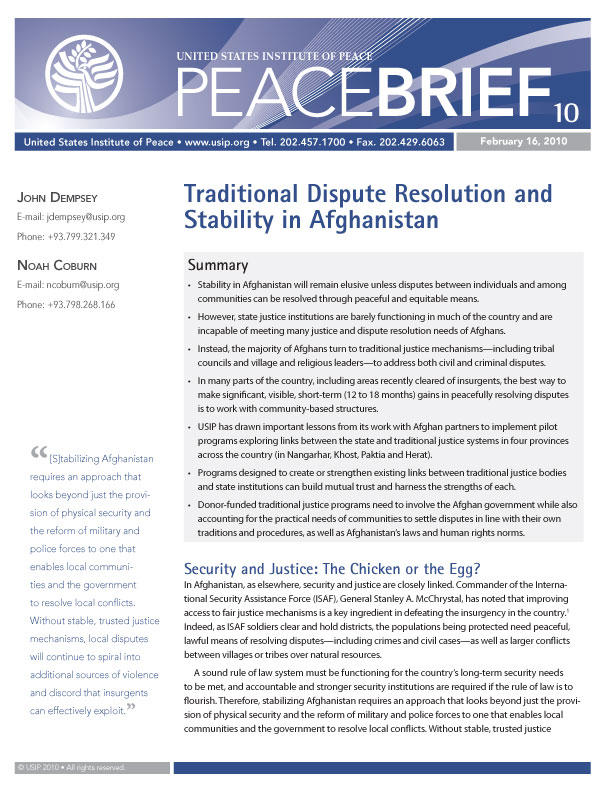Traditional Dispute Resolution and Stability in Afghanistan
Stability in Afghanistan will remain elusive unless disputes between individuals and among communities can be resolved through peaceful and equitable means. However, state justice institutions are barely functioning in much of the country and are incapable of meeting many justice and dispute resolution needs of Afghans.

Summary
- Stability in Afghanistan will remain elusive unless disputes between individuals and among communities can be resolved through peaceful and equitable means.
- However, state justice institutions are barely functioning in much of the country and are incapable of meeting many justice and dispute resolution needs of Afghans.
- Instead, the majority of Afghans turn to traditional justice mechanisms--including tribal councils and village and religious leaders--to address both civil and criminal disputes.
- In many parts of the country, including areas recently cleared of insurgents, the best way to make signi ficant, visible, short-term (12 to 18 months) gains in peacefully resolving disputes is to work with community-based structures.
- USIP has drawn important lessons from its work with Afghan partners to implement pilot programs exploring links between the state and traditional justice systems in four provinces across the country (in Nangarhar, Khost, Paktia and Herat).
- Programs designed to create or strengthen existing links between traditional justice bodies and state institutions can build mutual trust and harness the strengths of each.
- Donor-funded traditional justice programs need to involve the Afghan government while also accounting for the practical needs of communities to settle disputes in line with their own traditions and procedures, as well as Afghanistan’s laws and human rights norms.
About This Brief
John Dempsey is a lawyer and director of USIP’s rule of law programs in Afghanistan, where he has worked on legal development since January 2003. Noah Coburn is an anthropologist and traditional justice specialist with USIP in Afghanistan, where he has worked since 2005. This report re flects the preliminary findings of pilot projects USIP has sponsored in four provinces to explore positive linkages between the formal and informal justice systems in Afghanistan.



